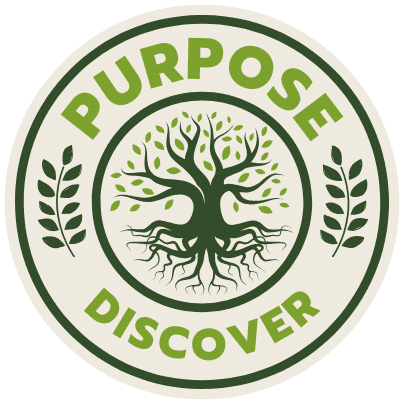There’s something oddly magnetic about the very idea of looking fear in the eye, especially when that fear takes the form of life’s big, gnarly questions. Why are we here? What’s the point? What happens when everything falls apart? These aren’t the kind of questions you toss around casually like small talk at a party. They’re the heavyweights, the deep cuts that can slice through the daily noise and leave your soul feeling exposed and vulnerable.
But here’s the kicker: facing those big questions doesn’t just require a little bravery; it demands a relentless kind of courage. Not the dramatic kind that gets applause but the quiet, stubborn courage that pushes you through the dark nights of doubt and uncertainty, where the only company is your own raw, unfiltered thoughts. It’s difficult, unsettling, and sometimes downright terrifying. Yet, it’s where the real growth sneaks in.
Why Courage Isn’t What You Think It Is
Let’s get one thing straight: courage isn’t the absence of fear. Trust me, if you’re waiting around for that moment when fear disappears, you might be waiting forever. Courage is choosing to move forward despite the fear, confusion, or paralysis that tries to stop you. It’s having the guts to stare down your biggest existential questions even when the answers feel slippery or downright disappointing.
So often, we glamorize courage as heroic leaps or bold declarations. But most courageous acts in wrestling with these questions are quiet, internal battles. It’s the morning you wake up and decide to quit running from what scares you—whether it’s doubt about your purpose, fear of mortality, or feeling adrift in a world that seems indifferent. Choosing to ask “Who am I, really?” or “What legacy do I want to leave?” even when the answers are foggy or painful—that’s where courage thunders.
Big Questions Aren’t Problems to Solve; They’re Invitations to Grow
What if these monumental questions about life aren’t puzzles with a single solution but an ongoing dialogue with yourself? If that’s true, then courage helps you stay in the conversation instead of bailing when it gets uncomfortable.
Think about it. When you ask, “Why am I here?” it’s easy to get stuck wanting one neat answer. But courage pushes you to sit with the messy, complicated, and sometimes contradictory feelings that arise. It takes guts to admit, “I don’t know what I’m doing” or “I’m scared of never finding meaning,” because those admissions make us feel vulnerable, maybe even weak. But vulnerability is the soil where courage takes root and meaning starts to sprout.
If you’re honest, these big questions often lead not to clarity but to more questions. That can feel like a trap. Courage is the thing that draws you out of that trap and lets you keep walking—even when the path is invisible. It whispers, “Keep asking. Keep wondering. Keep learning.”
When Courage Feels Like Walking Blindfolded
Sometimes, courage looks less like boldness and more like fumbling in the dark. I’ve been there—when the weight of life’s unanswered questions feels crushing. It’s like standing on the edge of a cliff, spotting no safe landing below, but still somehow feeling compelled to keep moving forward anyway.
That’s real courage. Not the Hollywood kind with a cape and spotlight, but the gritty human kind. The kind that says, “I don’t have it all figured out. But I’m not giving up.” It’s messy. It’s shaky. It’s the willingness to be imperfect. And for some reason, it seems to grow stronger the longer you practice it. The more you face those questions instead of running, the braver you become.
The Big Questions and the Reality of Fear
It’s wild how often people say they want to explore their purpose or grapple with life’s toughest questions, but freeze when it actually comes down to it. Fear is a master illusionist. It convinces us that asking these questions will only uncover a void or shatter our fragile sense of security.
Here’s the secret: asking those questions might uncover a void. It might even shake the foundation you thought was rock-solid. But that’s okay. Sometimes the foundation needs shaking to build something stronger and more authentic. Courage is what lets you rebuild, piece by piece. It’s what lets you stare into the void long enough to see not emptiness, but possibility.
If you’re someone who feels swept up by fear whenever you start to dig deep, you’re not alone. Fear is a constant companion on the journey. Yet, the courage to face it turns that companion from a bully into a kind of guide who reminds you what matters most.
Why Choosing Courage Changes Everything
Here’s a thought: what if courage didn’t just help you face big questions but changed the very nature of those questions? Often, when people confront their fears, the questions they’re wrestling with morph from terrifying monsters into curious friends.
For example, “Why am I here?” stops being a question that traps you in confusion and becomes a doorway to personal exploration. You might start dabbling in what lights you up, exploring experiences that feel meaningful, or simply reflecting on how you want to treat others. Courage breaks the spell of paralysis and invites curiosity.
Without courage, these questions can feel like weighty chains. With courage, they become tools—hammer and chisel to sculpt your life’s contours. It’s not always effortless or neat. It’s more like a dance: sometimes you stumble, sometimes you twirl, but you stay in motion.
Real Talk: Courage Is Uncomfortable
Courage isn’t a cozy blanket. It’s uncomfortable and weirdly lonely, sometimes. You might have people around who prefer you not dig too deep or ask tough questions because it threatens their own sense of safety. That’s a real tension to navigate. Standing by your own courage often means standing apart.
But those moments of discomfort? They’re actually a sign you’re doing something valuable. Growth rarely happens in comfort zones. When you feel uneasy wrestling with life’s big questions, you’re pressing against the edges of what you thought was possible or true. That’s the fertile ground where transformation begins.
How to Practice Courage When It Feels Impossible
If you ever find yourself overwhelmed, here are a few ways to honor your courage—even if you don’t feel brave in the moment:
🧭 Pause and Notice: Acknowledge the fear or discomfort without trying to chase it away. Saying, “I’m scared right now” out loud or journaling it can make the fear less monstrous.
🌱 Ask Small Questions: You don’t have to tackle the meaning of the universe all at once. Start with a smaller question: “What made me happy last week?” or “What am I curious about today?”
🤝 Find Your Tribe: Courage doesn’t need to be a solo act. Talk to people who respect your journey and can hold space for your questions without judgement.
🕯️ Embrace Uncertainty: Practice sitting with not knowing. Sometimes just being comfortable with mystery is its own brave act.
For more resources, personal stories, and tools that help you discover your purpose and face these questions head-on, check out this insightful site on finding your purpose. It’s a treasure trove for anyone willing to step into the unknown.
So, What’s the Payoff?
Isn’t it funny how something as simple as courage can flip the script on life’s biggest mysteries? Answers might never be neat or final, but the act of courageously exploring them shows us who we really are beneath the surface panic and noise.
Through courage, we don’t just survive those big questions — we learn to dance with them. We become richer, deeper, and more alive. And if that feels like a wild, winding ride, well, welcome to the club. The truth is, everyone’s on that journey.
Courage doesn’t mean having all the answers. It means showing up anyway, chasing those questions even when they feel daunting, strange, or downright scary. Maybe that’s what makes life worth living: the relentless, beautiful, stubborn courage to search—even when the destination is unknown.

